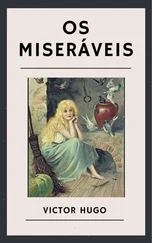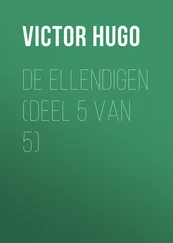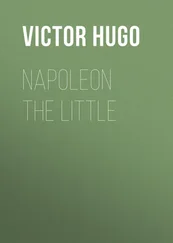Victor Hugo - Toilers of the Sea
Здесь есть возможность читать онлайн «Victor Hugo - Toilers of the Sea» — ознакомительный отрывок электронной книги совершенно бесплатно, а после прочтения отрывка купить полную версию. В некоторых случаях можно слушать аудио, скачать через торрент в формате fb2 и присутствует краткое содержание. Жанр: literature_19, foreign_antique, foreign_prose, на английском языке. Описание произведения, (предисловие) а так же отзывы посетителей доступны на портале библиотеки ЛибКат.
- Название:Toilers of the Sea
- Автор:
- Жанр:
- Год:неизвестен
- ISBN:нет данных
- Рейтинг книги:5 / 5. Голосов: 1
-
Избранное:Добавить в избранное
- Отзывы:
-
Ваша оценка:
- 100
- 1
- 2
- 3
- 4
- 5
Toilers of the Sea: краткое содержание, описание и аннотация
Предлагаем к чтению аннотацию, описание, краткое содержание или предисловие (зависит от того, что написал сам автор книги «Toilers of the Sea»). Если вы не нашли необходимую информацию о книге — напишите в комментариях, мы постараемся отыскать её.
Toilers of the Sea — читать онлайн ознакомительный отрывок
Ниже представлен текст книги, разбитый по страницам. Система сохранения места последней прочитанной страницы, позволяет с удобством читать онлайн бесплатно книгу «Toilers of the Sea», без необходимости каждый раз заново искать на чём Вы остановились. Поставьте закладку, и сможете в любой момент перейти на страницу, на которой закончили чтение.
Интервал:
Закладка:
Gilliatt seized the tiller, and in two minutes his boat entered the bay of the Bû de la Rue.
The young man wore a round hat and a white cravat; and his long black frock-coat was buttoned up to the neck. He had fair hair, which he wore en couronne . He had a somewhat feminine cast of features, a clear eye, a grave manner.
Meanwhile the boat had touched the ground. Gilliatt passed the cable through the mooring-ring, then turned and perceived the young man holding out a sovereign in a very white hand.
Gilliatt moved the hand gently away.
There was a pause. The young man was the first to break the silence.
"You have saved me from death."
"Perhaps," replied Gilliatt.
The moorings were made fast, and they went ashore.
The stranger continued —
"I owe you my life, sir."
"No matter."
This reply from Gilliatt was again followed by a pause.
"Do you belong to this parish?"
"No," replied Gilliatt.
"To what parish, then?"
Gilliatt lifted up his right hand, pointed to the sky, and said —
"To that yonder."
The young man bowed, and left him.
After walking a few paces, the stranger stopped, felt in his pocket, drew out a book, and returning towards Gilliatt, offered it to him.
"Permit me to make you a present of this."
Gilliatt took the volume.
It was a Bible.
An instant after, Gilliatt, leaning upon the parapet, was following the young man with his eyes as he turned the angle of the path which led to St. Sampson.
By little and little he lowered his gaze, forgot all about the stranger – knew no more whether the "Gild-Holm-'Ur" existed. Everything disappeared before him in the bottomless depth of a reverie.
There was one abyss which swallowed up all his thought. This was Déruchette.
A voice calling him, aroused him from this dream.
"Ho there, Gilliatt!"
He recognised the voice and looked up.
"What is the matter, Sieur Landoys?"
It was, in fact, Sieur Landoys, who was passing along the road about one hundred paces from the Bû de la Rue in his phaeton, drawn by one little horse. He had stopped to hail Gilliatt, but he seemed hurried.
"There is news, Gilliatt."
"Where is that?"
"At the Bravées."
"What is it?"
"I am too far off to tell you the story."
Gilliatt shuddered.
"Is Miss Déruchette going to be married?"
"No; but she had better look out for a husband."
"What do you mean?"
"Go up to the house, and you will learn."
And Sieur Landoys whipped on his horse.
BOOK V
THE REVOLVER
I
CONVERSATIONS AT THE JEAN AUBERGE
Sieur Clubin was a man who bided his time. He was short in stature, and his complexion was yellow. He had the strength of a bull. His sea life had not tanned his skin; his flesh had a sallow hue; it was the colour of a wax candle, of which his eyes, too, had something of the steady light. His memory was peculiarly retentive. With him, to have seen a man once, was to have him like a note in a note-book. His quiet glance took possession of you. The pupil of his eye received the impression of a face, and kept it like a portrait. The face might grow old, but Sieur Clubin never lost it; it was impossible to cheat that tenacious memory. Sieur Clubin was curt in speech, grave in manner, bold in action. No gestures were ever indulged in by him. An air of candour won everybody to him at first; many people thought him artless. He had a wrinkle in the corner of his eye, astonishingly expressive of simplicity. As we have said, no abler mariner existed; no one like him for reefing a sail, for keeping a vessel's head to the wind, or the sails well set. Never did reputation for religion and integrity stand higher than his. To have suspected him would have been to bring yourself under suspicion. He was on terms of intimacy with Monsieur Rébuchet, a money-changer at St. Malo, who lived in the Rue St. Vincent, next door to the armourer's; and Monsieur Rébuchet would say, "I would leave my shop in Clubin's hands."
Sieur Clubin was a widower; his wife, like himself, had enjoyed a high reputation for probity. She had died with a fame for incorruptible virtue. If the bailli had whispered gallant things in her ear, she would have impeached him before the king. If a saint had made love to her, she would have told it to the priest. This couple, Sieur and Dame Clubin, had realised in Torteval the ideal of the English epithet "respectable." Dame Clubin's reputation was as the snowy whiteness of the swan; Sieur Clubin's like that of ermine itself – a spot would have been fatal to him. He could hardly have picked up a pin without making inquiries for the owner. He would send round the town-crier about a box of matches. One day he went into a wine-shop at St. Servan, and said to the man who kept it, "Three years ago I breakfasted here; you made a mistake in the bill;" and he returned the man thirteen sous. He was the very personification of probity, with a certain compression of the lips indicative of watchfulness.
He seemed, indeed, always on the watch – for what? For rogues probably.
Every Tuesday he commanded the Durande on her passage from Guernsey to St. Malo. He arrived at St. Malo on the Tuesday evening, stayed two days there to discharge and take in a new cargo, and started again for Guernsey on Friday morning.
There was at that period, at St. Malo, a little tavern near the harbour, which was called the "Jean Auberge."
The construction of the modern quays swept away this house. At this period, the sea came up as far as the St. Vincent and Dinan gates. St. Merlan and St. Servan communicated with each other by covered carts and other vehicles, which passed to and fro among vessels lying high and dry, avoiding the buoys, the anchors, and cables, and running the risk now and then of smashing their leathern hoods against the lowered yards, or the end of a jibboom. Between the tides, the coachmen drove their horses over those sands, where, six hours afterwards, the winds would be beating the rolling waves. The four-and-twenty carrying dogs of St. Malo, who tore to pieces a naval officer in 1770, were accustomed to prowl about this beach. This excess of zeal on their part led to the destruction of the pack. Their nocturnal barkings are no longer heard between the little and the great Talard.
Sieur Clubin was accustomed to stay at the Jean Auberge. The French office of the Durande was held there.
The custom-house officers and coast-guardmen came to take their meals and to drink at the Jean Auberge. They had their separate tables. The custom-house officers of Binic found it convenient for the service to meet there with their brother officers of St. Malo.
Captains of vessels came there also; but they ate at another table.
Sieur Clubin sat sometimes at one, sometimes at the other table, but preferred the table of the custom-house men to that of the sea captains. He was always welcome at either.
The tables were well served. There were strange drinks especially provided for foreign sailors. A dandy sailor from Bilboa could have been supplied there with a helada . People drank stout there, as at Greenwich; or brown gueuse , as at Antwerp.
Masters of vessels who came from long voyages and privateersmen sometimes appeared at the captains' table, where they exchanged news. "How are sugars? That commission is only for small lots. – The brown kinds, however, are going off. Three thousand bags of East India, and five hundred hogsheads of Sagua. – Take my word, the opposition will end by defeating Villèle. – What about indigo? Only seven serons of Guatemala changed hands. – The Nanino-Julia is in the roads; a pretty three-master from Brittany. – The two cities of La Plata are at loggerheads again. – When Monte Video gets fat, Buenos Ayres grows lean. – It has been found necessary to transfer the cargo of the Regina-Cœli , which has been condemned at Callao. – Cocoas go off briskly. – Caraque bags are quoted at one hundred and thirty-four, and Trinidad's at seventy-three. – It appears that at the review in the Champ de Mars, the people cried, 'Down with the ministers!' – The raw salt Saladeros hides are selling – ox-hides at sixty francs, and cows' at forty-eight. – Have they passed the Balkan? – What is Diebitsch about? – Aniseed is in demand at San Francisco. Plagniol olive oil is quiet. – Gruyère cheese, in bulk, is thirty-two francs the quintal. – Well, is Leon XII. dead?" etc., etc.
Читать дальшеИнтервал:
Закладка:
Похожие книги на «Toilers of the Sea»
Представляем Вашему вниманию похожие книги на «Toilers of the Sea» списком для выбора. Мы отобрали схожую по названию и смыслу литературу в надежде предоставить читателям больше вариантов отыскать новые, интересные, ещё непрочитанные произведения.
Обсуждение, отзывы о книге «Toilers of the Sea» и просто собственные мнения читателей. Оставьте ваши комментарии, напишите, что Вы думаете о произведении, его смысле или главных героях. Укажите что конкретно понравилось, а что нет, и почему Вы так считаете.












